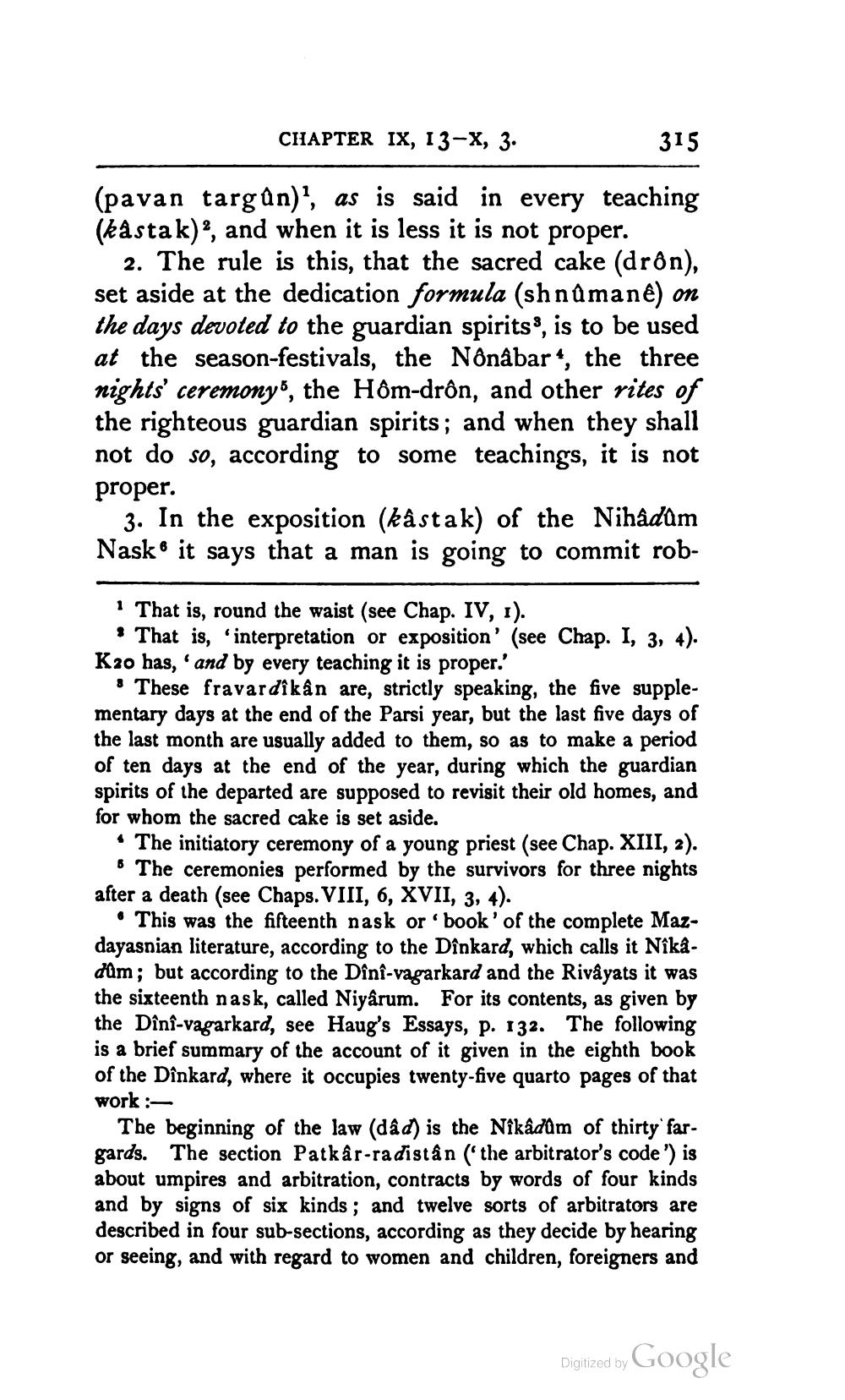________________
CHAPTER IX, 13-X, 3.
315
(pavan targûn)', as is said in every teaching (kasta k) ?, and when it is less it is not proper.
2. The rule is this, that the sacred cake (drôn), set aside at the dedication formula (sh nûmanê) on the days devoted to the guardian spirits, is to be used at the season-festivals, the Nônåbar“, the three nights' ceremony, the Hôm-drôn, and other rites of the righteous guardian spirits; and when they shall not do so, according to some teachings, it is not proper.
3. In the exposition (kâstak) of the Nihadam Nasko it says that a man is going to commit rob
1 That is, round the waist (see Chap. IV, 1).
• That is, 'interpretation or exposition' (see Chap. I, 3, 4). K20 has, and by every teaching it is proper.'
* These fravardikân are, strictly speaking, the five supplementary days at the end of the Parsi year, but the last five days of the last month are usually added to them, so as to make a period of ten days at the end of the year, during which the guardian spirits of the departed are supposed to revisit their old homes, and for whom the sacred cake is set aside.
• The initiatory ceremony of a young priest (see Chap. XIII, 2).
• The ceremonies performed by the survivors for three nights after a death (see Chaps. VIII, 6, XVII, 3, 4).
• This was the fifteenth nask or 'book' of the complete Mazdayasnian literature, according to the Dînkard, which calls it Nîkadum; but according to the Dînî-vagarkard and the Rivậyats it was the sixteenth nask, called Niyârum. For its contents, as given by the Dînî-vagarkard, see Haug's Essays, p. 132. The following is a brief summary of the account of it given in the eighth book of the Dinkard, where it occupies twenty-five quarto pages of that work:
The beginning of the law (dad) is the Nîkâdûm of thirty' fargards. The section Patkâr-radistân ('the arbitrator's code') is about umpires and arbitration, contracts by words of four kinds and by signs of six kinds; and twelve sorts of arbitrators are described in four sub-sections, according as they decide by hearing or seeing, and with regard to women and children, foreigners and
Digitized by Google




